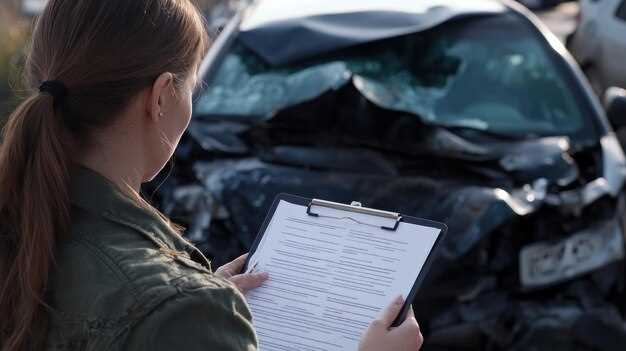
The resale value of a vehicle is influenced by numerous factors, with accident history being one of the most significant. When a car has a crash report associated with it, potential buyers often perceive it as having hidden damages or unrepaired issues, leading to a decrease in overall value. Understanding how accident history affects resale value is crucial for both sellers and buyers in the automotive market.
Vehicles that have been involved in accidents typically come with a catch-22: while they may be cheaper, their crash report can deter buyers who are concerned about safety and long-term reliability. As a result, the depreciation rate of these vehicles tends to be higher compared to their accident-free counterparts. This reality poses a challenge for sellers trying to maximize their return on investment.
In this article, we will explore how accident history impacts vehicle resale value, the importance of comprehensive reports during the buying and selling process, and tips for sellers to mitigate the negative consequences of prior accidents on their vehicles’ worth.
How Accident Reports Influence Buyer Perceptions and Pricing

Accident reports play a crucial role in shaping buyer perceptions and the resale value of vehicles. When potential buyers review a vehicle’s history, a documented accident can lead to diminished interest and lower offers. The presence of an accident report often signals underlying issues that may not be immediately visible. This can create a perception that the vehicle is less reliable or more prone to future problems.
Furthermore, buyers frequently associate vehicle accidents with value depreciation. A car that has been involved in an accident may be perceived as having compromised structural integrity or hidden damages that could affect performance. This perception often leads to buyers negotiating lower prices, as they calculate the risk of potential repairs or maintenance costs down the line.
Additionally, the severity and nature of the accident reported can significantly affect buyer attitudes. Minor accidents might not raise red flags for some buyers, while severe collisions can evoke strong feelings of distrust. As a result, vehicles with severe accident histories tend to see more substantial price reductions in the market.
Ultimately, the influence of accident reports on buyer perceptions and pricing is profound. Maintaining a clean history without significant incidents usually enhances a vehicle’s value, while documented accidents typically lead to diminished offers and skepticism among potential buyers.
Calculating Diminished Value: Factors and Methods Explained
The diminished value of a vehicle refers to the reduction in its resale value after a crash or accident, despite any repairs that may have been made. Understanding how to calculate this loss is crucial for both sellers and buyers in the automotive market. Several factors influence the diminished value of a vehicle.
Firstly, the severity of the crash plays a significant role. A minor fender bender will typically affect value less than a major collision that results in structural damage. The extent of repairs does not fully restore a vehicle to its pre-accident condition, impacting its market value.
Secondly, the vehicle’s make and model contribute to diminished value calculations. Luxury cars or rare models may experience a higher depreciation post-accident when compared to more common vehicles. The reputation of the brand for reliability or the history of accidents also factors into buyer perception.
The repair quality is another critical element. Professional, high-quality repairs can mitigate some of the diminished value, while subpar work can further diminish it. Documentation of repairs can also affect potential buyers’ perceptions.
Methods for determining diminished value often involve several approaches:
- The 17c Formula: This method estimates the diminished value based on the vehicle’s pre-accident value multiplied by a damage multiplier derived from the severity of the damage.
- Market Comparison: This approach examines comparable vehicles in the market to assess how much similar models have depreciated due to accident history.
- Expert Appraisals: Hiring a professional appraiser can provide a reliable and detailed assessment of diminished value, considering all relevant factors.
In conclusion, calculating the diminished value of a vehicle post-crash requires a careful examination of various factors and methods. Understanding these aspects is essential for making informed decisions in the resale market, ensuring fair transactions for all parties involved.
Legal Considerations: Disclosure Obligations for Sellers

Sellers of used vehicles have a legal obligation to disclose any accident history that may affect the resale value of the car. This includes documenting any crash reports and providing this information to potential buyers. Failure to disclose such information can lead to legal repercussions, as it may be considered fraud or misrepresentation of the vehicle’s condition.
In many jurisdictions, sellers are required to provide a full history report of the vehicle, which typically includes information about past accidents. This report should detail any recorded crashes, damages incurred, and subsequent repairs that were made. Transparency in these matters is crucial, as it helps buyers make informed decisions and protects sellers from future liability claims.
Moreover, the value of a vehicle can significantly decline if it has been involved in accidents. A potential buyer may be deterred by a vehicle’s crash history, affecting their willingness to purchase or the price they are willing to pay. Thus, understanding and adhering to disclosure obligations not only ensures compliance with the law but also preserves the vehicle’s market value.
In summary, sellers must prioritize honesty regarding the vehicle’s past incidents. Providing a clear and comprehensive accident report is essential in maintaining trust and ensuring a fair transaction, ultimately influencing the perceived value of the vehicle in the resale market.



